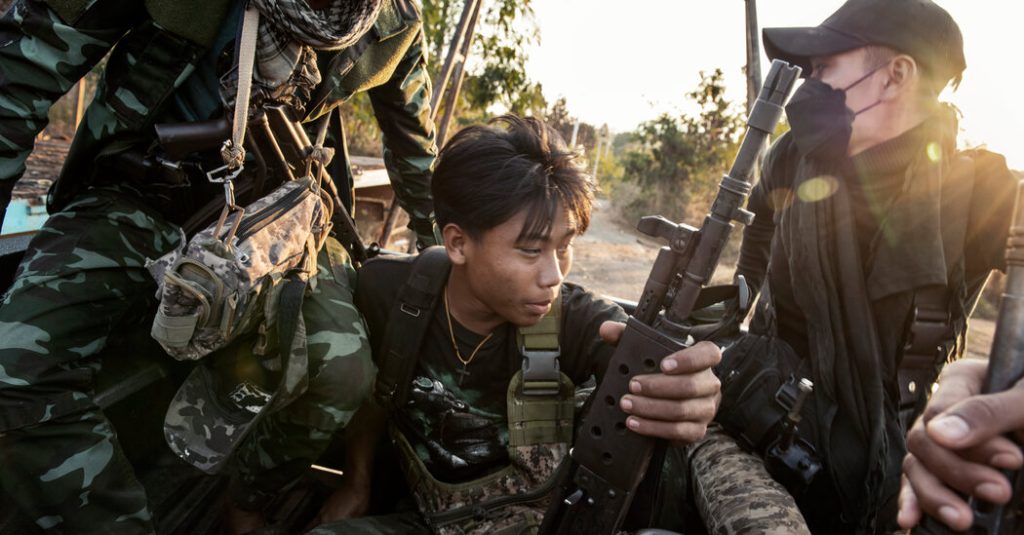The conflict in Myanmar, where rebels have been fighting against the military junta in a bid to overthrow the dictatorship, has intensified since the coup in February 2021. A new generation has taken up arms, joining long-standing rebel groups to resist the military regime. The rebels have made significant gains, overrunning military bases and towns and claiming control of more than half of Myanmar’s territory. The fighting feels like a throwback to past civil wars, with trenches, hand-to-hand combat, and land mines.
The rebels, comprised of hundreds of armed groups, are led by a diverse range of individuals, including veteran soldiers from ethnic armies, lawmakers, lawyers, and poets. The resistance is largely funded through crowdfunding by the Myanmar diaspora, with some groups also deriving funding from the illicit drug trade. Despite their efforts, the rebels have not received significant financial support from foreign governments, although some countries have imposed sanctions on the military regime.
One of the militias involved in the resistance is the Karenni Nationalities Defense Force (K.N.D.F.), led by young soldiers like Ms. Suu Kyi, who was wounded in a battle against the junta forces but returned to the front lines. The rebels are fighting to liberate Myanmar from the military’s control and establish a federal democracy. In addition to traditional combat, the rebels face challenges such as spreading land mines and ongoing airstrikes by the junta, causing widespread displacement and casualties among civilians.
The conflict has deep roots in Myanmar’s history of oppression by the military, which has long targeted ethnic minorities through various forms of violence and discrimination. The rebels, including soldiers like Ko Pal Law, have been fighting for autonomy and freedom for decades. The resistance movement has brought together people from diverse backgrounds, including students, monks, and civil servants, who have united in opposition to the military dictatorship. The rebels endure significant losses but remain determined to continue the fight for justice and democracy.
As the rebels continue their struggle against the junta, concerns remain about the international community’s lack of attention to the conflict in Myanmar. While other global conflicts receive widespread media coverage and support, the situation in Myanmar often goes unnoticed. Despite the challenges and risks they face, individuals like Ma Linn Ni Zho, a medical student who now operates a secret hospital to treat war casualties, remain committed to their cause. The rebels in Myanmar are prepared to sacrifice their lives to achieve freedom and democracy for their country, even if the road ahead is uncertain and dangerous.


